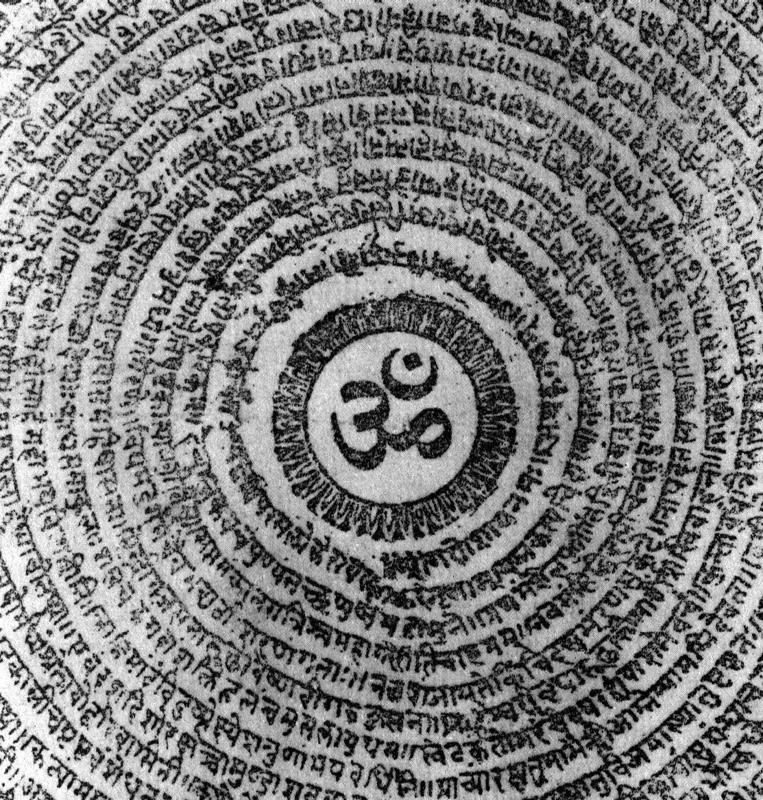Hari
Om
'Freedays' are the 'gather our thoughts' days;
Q&As; a general page reviewing the week so far…
On
Workingsdays we have been running through a kind of 'potted version' of
Vedanta. As with any summary, it can be a tad frustrating, both for the writer
and for the reader.
In
the first case, how much to relay at
this point? How much of technical language to introduce? What is not pertinent
at this stage for the casual enquirer? ...One of the great tools for writers is imagery and analogy. Though even then it can be tricky.
In
the second case... 'wanted to know more about that'…' that bit appears to
contradict that other bit'… 'this is far too esoteric'… the reader either has imagination fired - or doused.
The
difficulty lies between the two; telling enough to make the subject
interesting, to convey its essence fairly and to highlight the point of its
study sufficiently to bring the reader to a place of wanting to explore
further; in reading, finding the points which gel with current understanding,
noting the ones which beg to be questioned and finding a desire to explore
further.
If
the balance has been found, at that pivot point of the desire to explore further the two shall meet. The teacher will
find an audience and the seeker shall find new ways to view the world.
It
might be argued that this precis of Vedanta could have constituted the first
several posts on Aatmaavrajanam.
However, that too would not necessarily have been correct. Think of it in terms of 'real world'. How do individuals connect in live
situations? You, the reader, out on the
bus one day might overhear a conversation between two fellow passengers,
currently strangers to you. One has
asked the other about Sudurenium-lined Sthana-pliers, along the lines of
"Yesterday you mentioned a step-wise system of application, would you mind
elaborating on that for me?" The
expert in these tools addresses the question using 'trade' language, but still
keeping it plain enough for the apprentice to appreciate the finer points. You have an understanding that the other is
an apprentice because he or she had enough knowledge to have asked such a
question in the first place. Until now,
you had never heard of Suderenium-lined Sthana-pliers! Having studied some
engineering yourself, you are finding your curiosity piqued.
Next
morning, these two passengers who use specialised tools are again sitting
behind you. Their conversation continues to intrigue you. Enough that, for quite a
few rides, you endeavour to ensure you are on the same bus and seated close
enough to eavesdrop on this strange new field of interest. Sometimes the
technical stuff is total gobbledegook, other times there are simple things from
the senior of the two along the lines of the skills-level required; things like
knowing how to approach, how to handle, knowing the effect on the user, and so
forth.
You
find yourself wondering what these strange tools actually are and just exactly
where do they sit in the scheme of things…
In
that live scenario, you might then approach the two and make enquiry. What you will then receive is a summary. From
that you will find things familiar from all the conversations you have 'shared'
thus far, you may find things which intrigue you even further and, quite
possibly, you will find that you are invited to join the 'course' and be
advised of useful texts; for it turns out that the senior of the two is a
Professor of Suderenium-lined Sthana-pliers, those incredible, mysterious tools
which can open up the world of engineering.
Vedanta
is no 'Harry Potter' world, neither is it the land of 'Merlin'; yet sitting at
the feet of a guru, or having His words brought to you by one of his disciples,
equates somewhat to those fantasy lives. The mystery of life which unfolds
through Vedantic study has all the magic, all the charm and all the challenges
you might read about from those books.
The
key difference is that readers of fantasy are seeking escape from life as they
reach for control; readers of Vedanta are seeking to control life as they reach
for escape.
The
great beauty is that, in learning Vedanta, one can appreciate the messages
portrayed within fantasy, one can find the Vedanta everywhere. One of the learning tools for the CHYKs
(Chinmaya Yuva Kendra - youth groups) is to watch movies such as Matrix and
Batman and then discuss the Vedantic analogies to be found therein. You see, it
is not that one must not read or watch fiction, but in doing so, find the
underlying thread.
Or,
to coin a phrase, 'the one ring which binds us all'…. &*>

